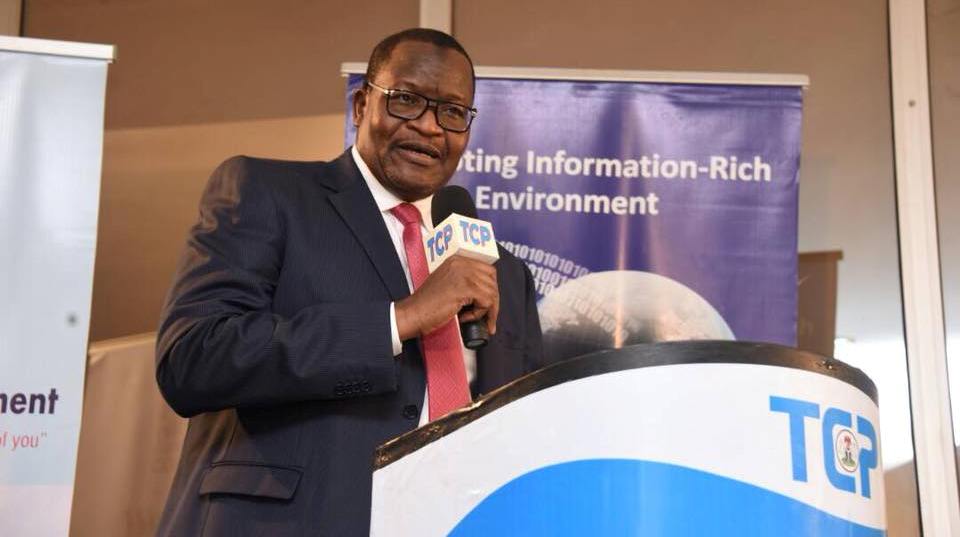….An ITPulse assessment: Part 1
Today marks exactly four years when the astute professor of telecommunications engineering, Prof. Umar Garba Danbatta, was appointed by President Muhammadu Buhari as the Executive Vice Chairman/CEO of the country’s telecoms industry regulator, the Nigerian Communications Commission (NCC).
Precisely on August 4, 2015, Danbatta was appointed by the President and subsequently confirmed by the Senate on November 25, 2015 in line with the provision of the Nigerian Communications Act (NCA), 2003, following thorough and rigorous screening by the Senator Gilbert Nnaji-led Communications Committe of the Senate.
Danbatta’s job as the ultimate umpire of the telecoms industry was affirmed for the five-year tenure in the first instance.
It is instructive, therefore, that as his appointment clocks four years today, Danbatta has left nobody in doubt that he is a competent regulator per excellence who has continued to provide the right and ‘no-nonsense’ leadership at the NCC.
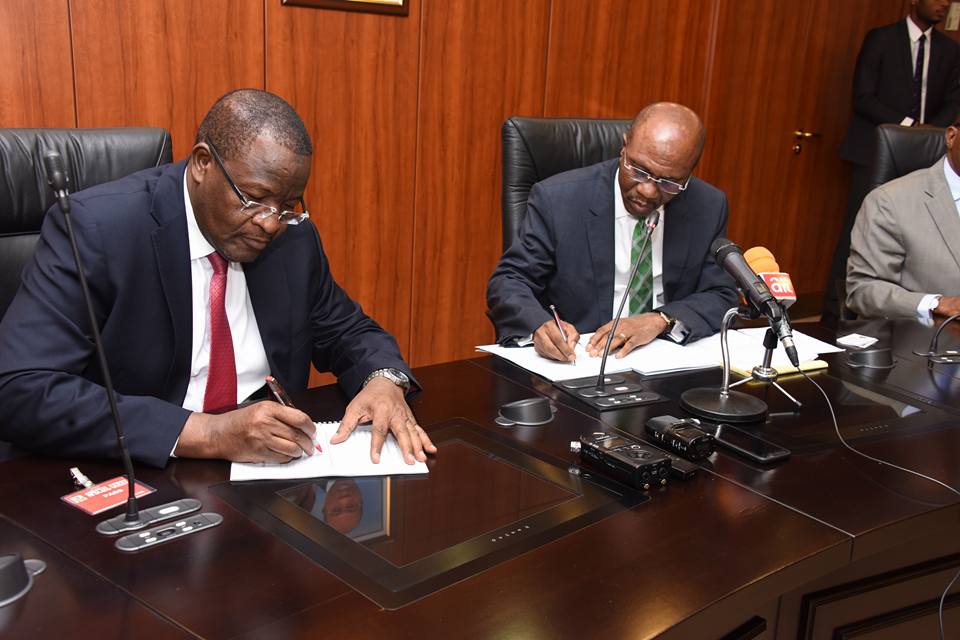
On assumption of office, four years ago, at the NCC’s architectural masterpiece located at Maitama District, Abuja, the Commission’s headquarters, which has, by all standards, remained the cynosure of all eyes, the former University lecturer came with the promise to effectively confront many challenges bedeviling the industry with a visible contribution to actively facilitate the development of a knowledge-driven, inclusive, globally-competitive and prosperous Nigeria through telecommunications.
Thus, he hit the ground running by unveiling his 8-Point agenda, which was expected to provide a focus for the Commission and the industry as a whole over the next five years from 2015. Focal issues on the agenda include facilitating broadband penetration, improving quality service, optimizing usage and benefits of spectrum, promoting ICT innovation and investment opportunities, facilitating strategic collaboration and partnership, protecting and empowering consumers, promoting fair competition and inclusive growth as well as ensuring regulatory excellence and operational efficiency.
Today, the agenda has gained a lot of traction. In the area of broadband penetration, which tops the agenda, Nigeria presently has 63,593,329 broadband subscribers, representing a 33.31 percent penetration as of the end of June, 2019. Though, this figure, put side-by-side with the estimated population of Nigeria put at 190 million by the National Population Commission (NPC) could be said to be poor, this is a giant leap from about six per cent when Danbatta came on board in 2015.
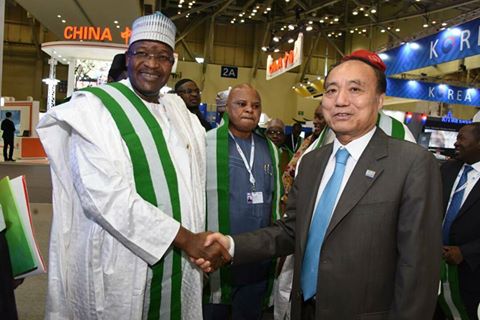
The passion for
Danbatta made this clear earlier in one of his speeches: “Nigerians need a robust and pervasive broadband connection more than ever before in today’s world, where people can easily interact with an Automated Teller Machine (ATM), carry out activities around e-commerce, e-government, tele-medicine, among others on a daily basis.”
Curiously, Nigeria’s hunger for data has grown significantly, largely to the generational change of telecommunications from the use of voice-dominated technologies (1G and 2G) to today’s data dominated technologies of 3G, 4G and even the much-talked-about 5G. Without a doubt, more virtualised engagements are happening online and will continue to be as it does appears the citizens have an insatiable need for data.
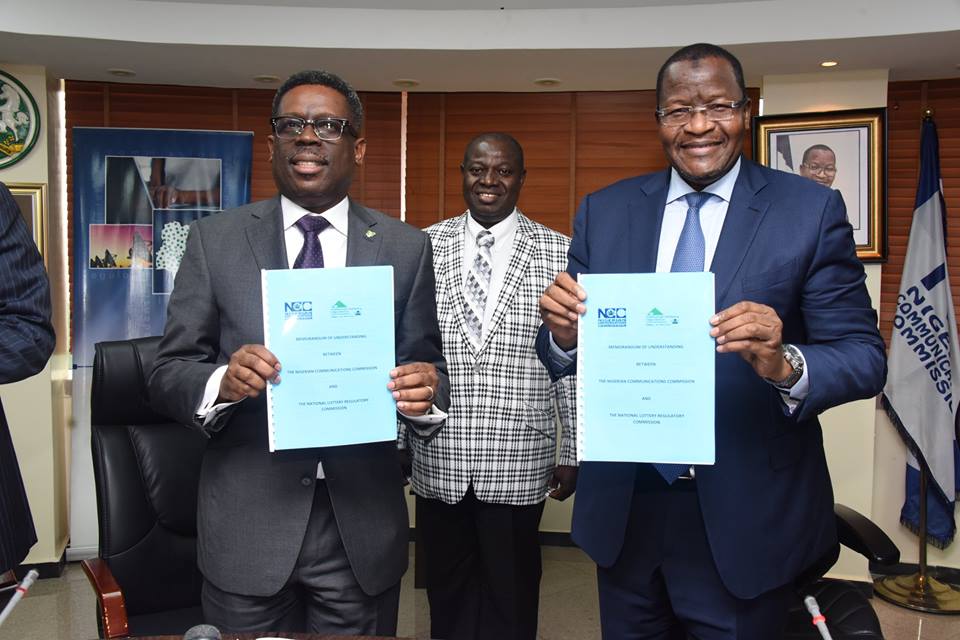
TV white space to the rescue for rural connectivity
Further to the strategic implementation of its 8-Point Agenda, the Commission recently partnered with the National Broadcasting Commission (NBC) and other industry stakeholders to discuss the introduction of television white spaces (TVWS) in order to develop a framework for effective utilisation of TV spectrum to take services to the unserved and under-served communities in the country.
TVWS is the unused broadcast spectrum, which can be deployed in the telecommunications sector to provide cost-effective broadband services to people in the rural, underserved and unserved areas of the country towards achieving universal access and universal service in line with the country’s digital agenda.
The collaboration with the NBC was in line with the fifth pillar of the NCC’s 8-Poing Agenda focusing on facilitating strategic collaboration and partnership with necessary government agencies and stakeholders.
The initiative for the use of TVWS in Nigeria mid-wifed by the Ministry of Communications, following approval for the use of the TVWS technology by the National Frequency Management Council (NFMC) will further help the Commission to deliver on its mandate of ensuring universal access to telecoms services in the rural, unserved and underserved areas.

“Ensuring that all Nigerians are connected is our priority at the Commission,” Danbatta stated at the stakeholders’ forum. “We are continuously in a quest to achieving rural connectivity goal and this quest has led us, as a Commission, into embarking on several initiatives to
InfraCo licensing
Also, closely linked to the effort of Danbatta-led NCC towards deepening broadband penetration is the Commission’s consistent pursuit of its Open Access Model (OAM) project aimed at extending access to digital services across the 774 local government councils in the country is its plan to license Infrastructure Companies (InfraCos).
In its modest quest to bridge the digital divide, the Commission put in place this initiative to fast-track broadband access and take services to several unserved and underserved areas of Nigeria with the implementation of its Open Access Model, through the InfraCo licensing. More pertinent to the digital transformation march is the fact that in 2018, the Commission was able to increase the number of InfraCo licences to six.
The six InfraCos so far licensed to drive the deployment of broadband infrastructure across the nation’s six geo-political zones and Lagos, include Raeana Nigeria Limited for the South-South Zone; O’dua Infraco Resources Limited for South-West Zone; Fleek Networks Limited for North-West Zone; Brinks Integrated Solutions for North-East Zone; MainOne Limited for Lagos Zone and Zinox Technologies Limited for the South-East Zone. The remaining licence for North Central Zone is being processed, according to the Commission.
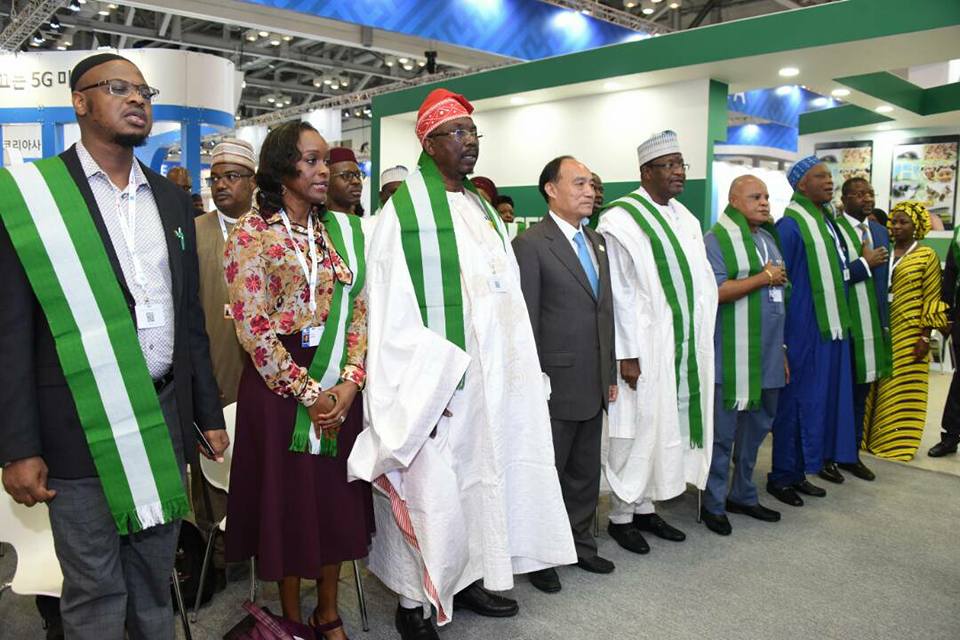
As a stimulus to encourage investors of InfraCo to roll out, NCC made provisions in the 2017 and 2018 budgets for subsidies to the InfraCo licensees and “subsidy negotiations with the licensees have reached an advanced stage and will soon be concluded,” according to the Commission.
During the recent visit by the United States Trade and Development Agency (USTDA) to the Commission’s headquarters in Abuja, Danbatta said the NCC had concluded the process leading to the disbursement of subsidies to the six licensed InfraCos in line with its digital transformation agenda of the Federal Government. The subsidy will augment the InfraCos’ capital expenditure (CAPEX).
Danbatta further stressed that the InfraCo scheme has a public-private partnership (PPP) arrangement and that the subsidy component is meant to fast-track deployment in the respective zones of the licensees.
Spectrum auctions and other initiatives
In the last four years of Danbatta leadership, the Commission, apart from achieving and surpassing the 30

According to Danbatta, “We will develop and implement flexible, market-oriented spectrum regulatory policies that promote highly efficient use of spectrum in ways that stimulate innovation, investment, and job creation and increased consumer benefits.”
Preparing Nigeria for emerging technologies’ opportunities
It is worthy of note that in the fourth quarter of 2018 and in consonance with the 3rd and 5th items of its 8-Point Agenda focusing on optimising usage and benefits of spectrum and facilitating strategic collaboration and partnerships, the NCC, in collaboration with the Global System for Mobile Communications Association (GSMA) in the fourth quarter of 2018, held a workshop to discuss the prospects and challenges of Next-Generation Networks (NGN) such as the Internet of Things (IoT), 5G, Artificial Intelligence (AI), Big Data, among others, in the nation’s telecoms industry.
Danbatta during the workshop said the workshop was “to provide an avenue for regulators, operators, investors as well as other stakeholders to examine and constructively exchange ideas on the main demand areas for next generation of services, spectrum licensing reforms and the requirements for 5G and other emerging technologies that are to revolutionise the telecom system and users.” The workshop, thus, formed the precursor to the country’s preparedness of the Commission for the impending deployment of 5G services due to commence globally by 2020.
Stay on this page for part 2 of this assessment in two days


